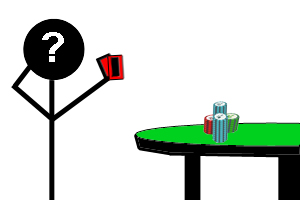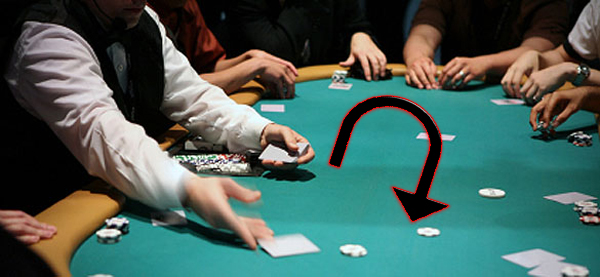 The first step towards becoming a pro is learning the basics of poker. Learning how to play poker is not as difficult as you would think, as the game is quite straight forward and basic. However, there are other aspects that are more complicated, but those are learned through real poker experience. Professional poker players spend years and years mastering their craft, which is why they make it look so easy, but in the end, you can learn exactly what they know.
The first step towards becoming a pro is learning the basics of poker. Learning how to play poker is not as difficult as you would think, as the game is quite straight forward and basic. However, there are other aspects that are more complicated, but those are learned through real poker experience. Professional poker players spend years and years mastering their craft, which is why they make it look so easy, but in the end, you can learn exactly what they know.
What is Poker?
Poker is a card game that relies mostly on luck, but also involves a certain element of skill. There are many different types of poker games, so you will need to learn the specific rules for the one’s you are most interested in playing. There are general rules and guidelines that fit any poker game you want to learn, so we will be going over these. Regardless of which variant you choose, you will always get a certain amount of cards, which is called your “hand”. Your hand, plus other cards involved will ultimately decide if you win or not.
General Poker Terms
It is important to know the terms associated with poker, as this will help you better understand as you play. Some of the general terms you will hear are:
- Dealer: person in charge of handing out the cards.
- Check: when a player passes on betting. Happens when a player doesn’t want to raise, but wants to stay in the action.
- Call: when a player wagers the minimum amount needed to continue playing.
- Raise: when a player bets more than the minimum, forcing other players to bet more money.
- Fold: when a player forfeits his hand and is out for the round; usually happens when they have a bad hand.
- Community Cards: cards placed in the middle of the table, where every player at the table can use to make their hand.
- Big Blind: an initial bet of the table minimum.
- Small Blind: an initial bet of half the table minimum.
- Pot: the accumulated money wagered during any given round.
- Ante: A small bet all players are required to make before a hand is dealt. This is different than the BB/SB, as all players need to place the Ante.
- All-In: when a player wagers all of the chips they have.
- Chips: poker currency, used as representation of cash/money.
These basic terms will help you on your way to becoming a good player. There are many other poker specific terms, which you will learn along the way.

A Basic Poker Round
As you sit down at the table, the game will begin. You will be surrounded by other players, as well as a dealer. The round will start when everyone has received their cards, and usually the following steps occur:
- If there is a Big Blind/Small Blind, those players will place their bet down.
- The dealer will then proceed to hand the cards to each player in order.
- Once every player has their cards, they can look at their hand and decide to: Check, Fold, Call, or Raise. This will be the first round of betting.
- After each player has made their choice, the dealer will, depending on the variant, exchange players cards or place cards on the table (community cards).
- Another round of betting will occur, and the dealer will again exchange or place cards on the table.
- This will happen during several turns, until the designated end-time; this will differ based on which poker variant you are playing. It could go for only one turn or several.
- The last turn will be when each player still in the match shows their cards. The player with the better hand will take the pot.
It is not as complicated as you thought, is it? All you need to learn are the hand rankings of each poker variant, as well as their basic rules, and you will be ready to play.



